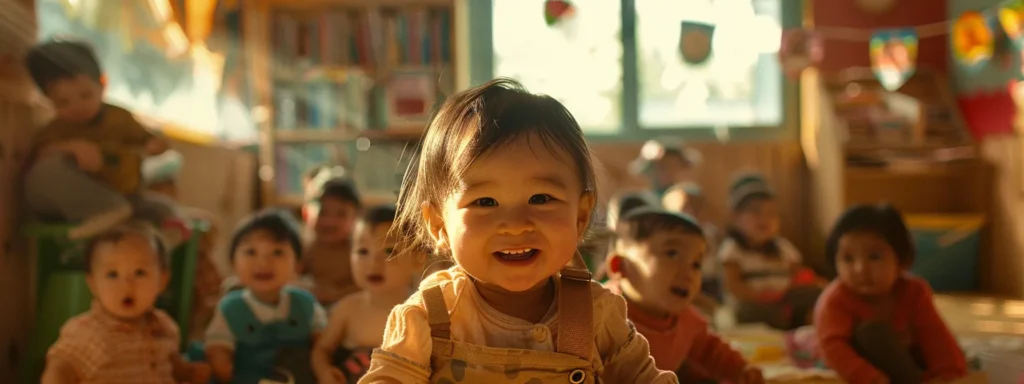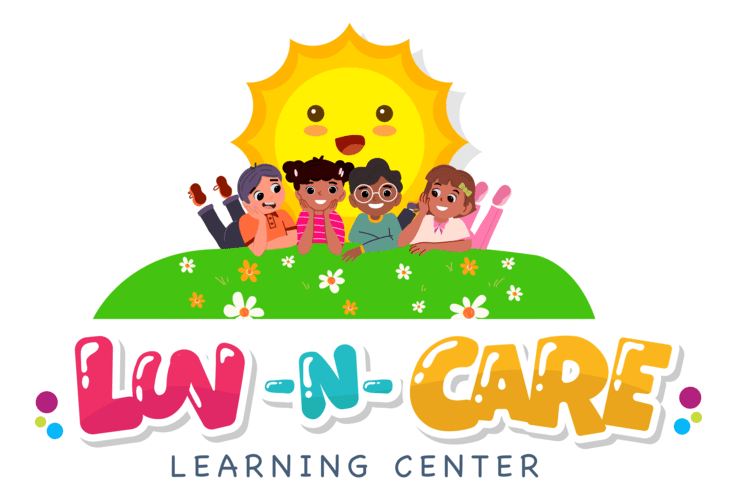Table Of Contents:
Choosing a daycare for an infant can be overwhelming for any parent. With so many options, it’s essential to identify what truly defines a high-quality infant daycare. This post will highlight key indicators such as the qualifications of staff, a safe and clean environment, and a developmentally appropriate curriculum. By understanding these essential signs, parents can ensure they select a daycare that not only supports their child’s nutrition and accessibility needs but also fosters healthy development. Addressing these pain points will lead to informed decisions that secure the best care for their little ones.
Key Takeaways
- Qualified staff with ongoing training ensures a safe and nurturing environment for infants
- Low child-to-staff ratios provide individualized attention essential for healthy development
- Consistent caregivers build trust with families, fostering positive relationships and emotional security
- High hygiene standards prevent illness, promoting both physical and mental health for children
- Accreditation and positive reviews reinforce a daycare’s commitment to quality care and safety
Qualified and Caring Staff

High-quality infant daycare at Programs at Luv-N-Care relies heavily on having qualified and caring staff. About Us professionals should possess appropriate certifications and training, ensuring they understand early childhood needs, including social emotional development. A low child-to-staff ratio allows for individual attention, while ongoing professional development keeps educators up-to-date on best practices. Consistent caregivers help build trust with families, further enhancing the daycare experience.
Staff With Appropriate Certifications and Training
Staff members at high-quality infant daycares must hold appropriate certifications and training that equip them to care for young children effectively. This training typically includes essential topics such as fire safety, observation skills, and proper discipline techniques to manage behavior positively. Additionally, caregivers should be well-versed in critical practices like hand washing and surveillance methods to ensure a safe and healthy environment for infants and toddlers:
| Training Topic | Description |
|---|---|
| Fire Safety | Staff learn how to prevent, identify, and respond to fire hazards. |
| Observation Skills | Training focused on recognizing developmental milestones and individual needs. |
| Discipline Techniques | Positive strategies for guiding behavior and promoting social skills. |
| Hand Washing | Emphasizing proper hygiene to prevent illness among children. |
| Surveillance Methods | Ensuring child safety through careful monitoring of activities. |
Low Child-to-Staff Ratios for Individual Attention
Low child-to-staff ratios are essential for providing the individual attention that infants require for healthy growth and development. With smaller groups, caregivers can focus on each child’s unique needs, enhancing their social skills and fostering essential child development milestones. According to the Centers for Disease Control and Prevention, proper sleep and attentive interaction are critical for infants, and a low ratio allows staff to attend promptly to these needs, ensuring a nurturing and safe environment for every child.
Ongoing Professional Development for Educators
Ongoing professional development for educators is crucial in a high-quality infant daycare, as it equips staff with the latest knowledge and understanding of early childhood education practices. Regular training not only covers essential topics such as immunization and sanitation but also focuses on specific health concerns like otitis media, which can affect young children. By staying current with best practices, educators can provide a safe and nurturing environment that supports the unique developmental needs of infants:
- Regular updates on immunization practices
- Training in proper sanitation techniques to prevent illness
- Understanding common health issues affecting infants, such as otitis media
- Enhancing skills in early childhood education methodologies
Consistent Caregivers to Build Trust
Consistent caregivers play a crucial role in building trust with families in a high-quality infant daycare. By adhering to policies that prioritize caregiver stability, the daycare ensures a secure environment where infants can thrive. Additionally, trained staff with first aid certifications not only prioritize the welfare of each child but also enhance the emotional development of infants through familiar, nurturing relationships, reflecting principles from developmental psychology.
| Key Aspect | Description |
|---|---|
| Consistent Caregivers | Fostering emotional security through stable relationships. |
| Policy on Staff Stability | Implementing guidelines to reduce turnover and maintain familiar faces. |
| First Aid Training | Equipping staff to handle emergencies and ensure child safety. |
| Focus on Welfare | Placing children’s needs and safety at the forefront of care. |
| Developmental Psychology Principles | Supporting individual growth through attentive, loving care. |
Safe and Clean Environment

A safe and clean environment is a critical indicator of a high-quality infant daycare. Effective childproofing ensures safe spaces that protect children from potential hazards. Strict hygiene practices are vital in preventing illness and maintaining wellness among the children. Additionally, secure entry systems safeguard access to the facility, while regular safety drills and protocols prepare staff for emergencies. Each of these elements reflects a fundamental philosophy aimed at reducing stress and turnover, ultimately enhancing the daycare experience.
Childproofed Spaces for Safety
A high-quality infant daycare prioritizes childproofed spaces to ensure safety and protect children from potential hazards. By following guidelines set forth by the American Academy of Pediatrics, facilities can reduce the risk of infections and other safety concerns related to injuries or accidents. Implementing childproofing measures, in accordance with occupational safety and health regulations, fosters a safe environment where emergencies can be effectively handled, allowing children to explore and learn without undue risk.
| Key Safety Measures | Description |
|---|---|
| Childproof Locks | Installed on cabinets and drawers to prevent access to harmful substances. |
| Cord Management | Ensuring cords from blinds and electronics are secured to prevent strangulation risks. |
| Soft Furnishings | Utilizing padded furniture and mats to cushion falls and provide comfort. |
| Rounded Edges | Employing furniture with rounded corners to minimize injury potential during play. |
| Regular Safety Drills | Practicing emergency procedures to prepare staff and children for various situations. |
Strict Hygiene Practices to Prevent Illness
Strict hygiene practices at a high-quality infant daycare are vital for preventing illness and supporting the overall health of children. These practices include regular hand washing, thorough cleaning of toys and surfaces, and ensuring that staff members are knowledgeable about proper sanitation techniques. Such an environment not only promotes physical health but also contributes to mental health, as parents can feel secure knowing that their children are in a safe place, fostering socialization without the added worry of illness. Daycares may even provide medication administration when necessary, ensuring that children receive appropriate care while maintaining hygiene standards, which is crucial for parents seeking social services or subsidy assistance.
Secure Entry Systems to Protect Children
Secure entry systems are essential in a high-quality infant daycare, helping to protect children from potential abuse and minimizing risks associated with unauthorized access. By implementing controlled entry procedures, daycares can effectively monitor who enters the facility, ensuring that staff can maintain a safe environment for all preschool attendees. This level of security not only supports the overall behavior management within the center but also provides peace of mind to parents during drop-off and pick-up, knowing that their children are in a protected space during meal times and daily activities.
Regular Safety Drills and Protocols
Regular safety drills and protocols are essential components of a high-quality infant daycare that prioritize child care. Research shows that routine safety practices not only prepare staff and children for emergencies but also help parents feel more secure when entrusting their children to daycare facilities. By providing consistent training and attention to safety, daycares can create an environment that parents appreciate, knowing their little ones are always protected and cared for during their important developmental years.
Developmentally Appropriate Curriculum

A developmentally appropriate curriculum is vital in high-quality infant daycare, such as that offered at Luv-N-Care. Programs focused on stimulating physical growth, enhancing cognitive development, and fostering language development create a well-rounded experience for infants. Furthermore, opportunities for social interaction, along with inclusion of art and music, nurture creativity, ensuring a supportive environment for every child’s growth and well-being.
Activities That Stimulate Physical Growth
Activities that stimulate physical growth are crucial in high-quality infant daycare environments. Engaging infants in activities such as crawling tunnels, gentle obstacle courses, and sensory play helps promote gross motor skills development. These interactive experiences encourage movement and exploration, laying the foundation for lifelong physical health and coordination.
| Activity | Description |
|---|---|
| Crawling Tunnels | Encourage infants to explore through tunnels, enhancing their crawling skills and muscle strength. |
| Gentle Obstacle Courses | Provide varied surfaces and shapes for infants to navigate, improving balance and coordination. |
| Sensory Play | Involve textures, shapes, and colors that stimulate tactile exploration and fine motor skills. |
Programs That Encourage Cognitive Development
Programs that encourage cognitive development in a high-quality infant daycare are designed to stimulate thinking and problem-solving skills in young children. These programs utilize engaging activities that prompt exploration and curiosity, such as interactive storytelling and simple puzzles, which help infants learn cause and effect while enhancing their memory. By fostering an environment rich in language and stimuli, these programs support infants’ overall cognitive growth, paving the way for future learning success.
Opportunities for Social Interaction
Opportunities for social interaction are vital in a high-quality infant daycare curriculum, as they help children develop essential interpersonal skills. Engaging in group activities, such as collaborative play and guided storytelling, enables infants to learn how to share, communicate, and build friendships at an early age. These interactions not only support emotional development but also lay the groundwork for positive social behaviors throughout their lives:
| Type of Interaction | Description |
|---|---|
| Collaborative Play | Infants engage in activities that require teamwork, fostering communication skills and cooperation. |
| Guided Storytelling | Staff lead interactive stories that prompt discussion and sharing among children, enhancing language development. |
| Group Activities | Structured playtime allows infants to practice taking turns and understanding social cues. |
Inclusion of Art and Music for Creativity
The inclusion of art and music in a high-quality infant daycare curriculum serves as a vital component for nurturing creativity and self-expression among young children. Engaging infants in activities such as painting, singing, and instrument play stimulates their imagination and enhances cognitive development. By creating a rich sensory environment with diverse artistic experiences, caregivers not only foster creativity but also promote emotional and social growth, helping children develop essential communication skills as they share their artistic creations with peers.
Open Communication With Parents

Open communication with parents is a cornerstone of a high-quality infant daycare. Regular updates on a child’s progress ensure that families are informed and engaged in their development. Accessible communication channels foster open dialogue, while involvement opportunities for families encourage collaboration. Transparent policies and procedures help build trust and understanding between caregivers and parents, enhancing the overall daycare experience.
Regular Updates on Child's Progress
Regular updates on a child’s progress are essential in a high-quality infant daycare, as they keep parents informed about their child’s development milestones and changes in behavior. Caregivers should provide clear, concise reports on daily activities, skills learned, and any notable interactions with peers. This communication not only keeps parents engaged but also allows for a collaborative approach to fostering the child’s growth:
- Daily reports covering activities and mood
- Monthly assessments of developmental milestones
- Open invitations for parents to discuss concerns and observations
Accessible Communication Channels
Accessible communication channels are vital in a high-quality infant daycare, facilitating ongoing collaboration between caregivers and parents. By utilizing various methods such as phone calls, emails, and messaging apps, daycares can provide timely updates on a child’s daily activities, development milestones, and any concerns that may arise. This approach ensures that parents remain engaged and informed about their child’s progress, fostering a trusting relationship that enhances the overall daycare experience.
Involvement Opportunities for Families
Involvement opportunities for families are a critical aspect of high-quality infant daycare, as they foster a collaborative environment between caregivers and parents. Daycares can arrange events such as family days, workshops, and parent-teacher meetings, encouraging parents to participate actively in their child’s development. These interactions not only strengthen the bond between families and caregivers but also provide valuable insights into the child’s progress, enhancing the daycare experience for everyone involved.
Transparent Policies and Procedures
Transparent policies and procedures are a fundamental aspect of a high-quality infant daycare, fostering trust and understanding between caregivers and parents. By clearly outlining expectations, operational protocols, and emergency procedures, daycares can create a secure environment where families feel informed and engaged. For instance, providing accessible handbooks or online resources that detail health and safety guidelines allows parents to understand how their children are cared for, ultimately enhancing the daycare experience and promoting open dialogue.
Nurturing and Positive Atmosphere

A nurturing and positive atmosphere is vital in high-quality infant daycare. This includes warm interactions between staff and children, fostering emotional well-being through supportive practices. Encouragement of positive behavior and respect for individual needs and differences further contributes to a child-friendly environment. Each of these aspects plays a critical role in promoting a healthy, responsive setting for infants.
Warm Interactions Between Staff and Children
Warm interactions between staff and children are essential indicators of a high-quality infant daycare. Staff members who engage with infants through gentle words, smiles, and responsive gestures not only foster a sense of safety but also support emotional development. By creating a nurturing environment where caregivers consistently provide positive reinforcement, children feel valued and secure, which is crucial for their growth and well-being.
Support for Emotional Well-Being
Supporting emotional well-being in a high-quality infant daycare is crucial for fostering a sense of security and happiness in children. Caregivers demonstrate this support by providing consistent and nurturing interactions, which help infants develop trust and emotional resilience. For instance, staff trained in early childhood development can effectively recognize and respond to a child’s needs, creating an environment where each child feels heard and valued, ultimately promoting positive growth and development.
Encouragement of Positive Behavior
Encouragement of positive behavior is an essential aspect of a nurturing and positive atmosphere in high-quality infant daycare. Caregivers employ techniques such as positive reinforcement to promote good behavior, which helps infants learn essential social skills and develop a sense of self-esteem. By acknowledging and celebrating small achievements, staff create an environment where children feel motivated to engage in cooperative play and respectful interactions with their peers:
- Positive reinforcement of good behavior.
- Celebration of small achievements builds self-esteem.
- Creation of a cooperative play environment for respectful interactions.
Respect for Individual Needs and Differences
Respecting individual needs and differences is a cornerstone of a nurturing and positive atmosphere in a high-quality infant daycare. Caregivers should acknowledge each child’s unique temperament, learning style, and background, ensuring that they tailor their approaches to foster inclusion and understanding. This individualized attention not only supports emotional health but also promotes confident exploration, allowing children to thrive in a supportive environment:
- Each child’s unique needs are recognized.
- Tailored caregiving approaches to foster inclusion.
- Individual attention supports emotional health.
- Encouragement of confident exploration in a supportive environment.
Proper Licensing and Accreditation

Proper licensing and accreditation are critical indicators of a high-quality infant daycare. Compliance with state and local regulations ensures that the facility meets essential health and safety standards. Accreditation from recognized organizations highlights a commitment to high standards in child care. Positive reviews and testimonials from parents further reinforce the daycare’s reputation and trustworthiness, providing valuable insights into the experience children receive.
Compliance With State and Local Regulations
Compliance with state and local regulations is a critical aspect of maintaining a high-quality infant daycare. These regulations encompass health and safety standards that all facilities must adhere to, ensuring a secure environment for children. Daycares that consistently meet these requirements demonstrate their commitment to providing quality care, which helps parents feel confident in their choice of daycare.
Accreditation From Recognized Organizations
Accreditation from recognized organizations signifies that a daycare facility meets high standards for early childhood education and care. This independent validation ensures that the center adheres to essential health, safety, and developmental guidelines. For parents seeking a trustworthy option for their child, accredited daycares typically offer a level of assurance that they are committed to providing quality care and fostering a nurturing environment, which is vital for a child’s overall growth and well-being:
| Accreditation Aspect | Description |
|---|---|
| Independent Validation | Accredited facilities undergo evaluations by external organizations to meet educational and safety standards. |
| Commitment to Quality | Accreditation highlights a daycare’s dedication to continuous improvement in child care practices. |
| Parental Assurance | Parents can feel more confident in their choice when selecting accredited daycares for their children. |
Continuing Commitment to High Standards
A continuing commitment to high standards in a daycare signifies a dedication to ongoing improvement in childcare practices. Facilities consistently review their operations, align with updated regulations, and participate in additional training sessions to ensure they meet or exceed accredited benchmarks. This effort not only enhances the quality of care received by infants but also fosters a sense of trust among parents, who can feel assured their children are in a nurturing and safe environment.
| Accreditation Aspect | Description |
|---|---|
| Regular Training | Staff undergo frequent training to stay informed on best practices in infant care. |
| Peer Reviews | Accreditation bodies conduct evaluations to maintain adherence to safety and educational standards. |
| Policy Updates | Daycares review and update policies to align with new regulations and emerging childcare trends. |
Positive Reviews and Testimonials From Parents
Positive reviews and testimonials from parents serve as significant indicators of a high-quality infant daycare. Parents sharing their firsthand experiences provide valuable insights into the care and environment their children receive, highlighting aspects such as staff professionalism, safety, and overall satisfaction. By reviewing these testimonials, prospective families can gauge the daycare’s reputation, offering reassurance that their children will be well cared for in a nurturing, accredited setting.
Conclusion
High-quality infant daycare is essential for fostering a safe, nurturing environment that supports children’s growth and development. Key indicators include a qualified and caring staff, low child-to-staff ratios, a clean and secure facility, and a developmentally appropriate curriculum. Engaging in open communication with parents builds trust and enhances the overall daycare experience. Families should prioritize these signs when selecting a daycare to ensure their children receive the highest standard of care and support.
